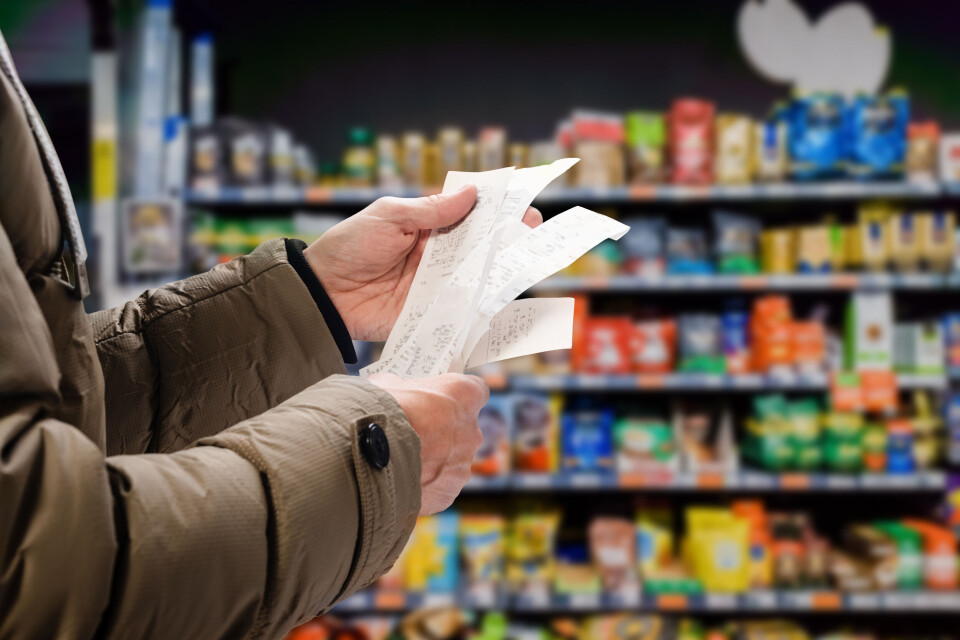-
More than 5,000 French communes use AI to identify poor rubbish sorting
Badly-sorted rubbish can cost millions so communes are turning to high-tech solutions
-
Tax on well-off retirees under consideration for 2026 budget
‘Nothing is off the table’ when it comes to finding €40 billion in savings says Labour Minister
-
Nice airport records passenger boom as tourists flock to city
Airport figures exceeded the pre-Covid record last year, with US visitors significant contributors
Inflation in France set to reach 3%: Tips for saving on prices
The cost of fuel and food will continue to be high for several months but there are offers around

France’s inflation rate is set to continue rising to between 3% and 3.5% over the first half of 2022, the national statistics office Insee predicted yesterday (February 8).
This comes as the rate was found in January to have reached 2.9% over the course of 2021.
As well as well-documented increases in the price of fuel, the higher rate of inflation will be especially visible in food prices, among which inflation is set to be at 2.5% by June, compared to 1.5% in January.
How can I save money amid high inflation?
“The first strategy which big supermarket chains will employ is to try to fend off price rises,” supermarket expert Olivier Dauvers told La Dépêche. Brands which are known for their low prices will fight to maintain them, as has been evidenced by Leclerc’s 29 centime baguette.
Read more:‘Bakeries will die’: Anger in France at Leclerc’s 29-centime baguette
“They are trying, through somewhat symbolic operations, to reassure consumers, to show that they are on their side,” Mr Dauvers added.
Consumers should therefore look out for promotions and discount offers, which are likely to multiply as general prices rise.
Read more:How to check how expensive your local French supermarket is
In terms of petrol and diesel prices, you should also think about waiting to fill up until the weekend, when supermarkets have often been selling petrol and diesel at cost price in special deals.
Tomorrow (February 10), the Intermarché petrol station in Saint Amand Montrond (Cher) will be selling all of its fuels at €1 per litre (with the use of vouchers to make up the rest). Customers will pay the normal price but then receive the difference in vouchers for the supermarket which will remain valid until February 13.
Read more: Increased fuel prices in France turn drivers to gas-powered cars
TotalEnergies energy company has today announced two measures aimed at helping customers to cope with the rise in prices.
The company’s CEO Patrick Pouyanné said today (February 9) during an interview on RTL: “We are going to send a €100 cheque,” to up to 200,000 customers.
“The government has given them €100 [in ‘inflation compensation’], we will double it.”
France’s 1,150 rural Total petrol stations will also be offering a €5 discount on purchases of over 50 litres, and €2 for 20 litres.
This offer will begin on February 14 and is expected to last for three months.
Info RTL - "Les clients en précarité énergétique au gaz de TotalEnergies bénéficieront d'un chèque Gaz de 100 euros", @PPouyanne, PDG de @TotalEnergies, dans #RTLMatin. "Et pour les carburants, dans les zones rurales, le groupe va offrir des remises en caisse, 10c par litre" pic.twitter.com/kPsNQUUCWM
— RTL France (@RTLFrance) February 9, 2022
In addition, although it might not make a huge difference, it will help to empty your boot and take off any roof boxes, as a lighter vehicle consumes less fuel. If possible, you can also save by avoiding abrupt acceleration and braking and trying to move at a constant speed.
Higher inflation rate than first predicted
Insee had initially predicted that inflation would sit just above 2.6% in the first six months of 2022, but this figure has now been recalculated amid the global economic recovery from Covid and rapid increases in the cost of raw materials and energy.
However, the acceleration has been contained by the measures put in place by the government to maintain people’s purchasing power, which include an exceptional chèque énergie payment last year, the €100 ‘inflation compensation’ scheme and the cap on gas and electricity price rises.
Read more: Prime de Noël, chèque energie, €100 bonus: who in France will benefit?
“Without them, the inflation forecast for February would have risen by at least 1%,” Insee said.
Slower economic growth
While it has increased its inflation rate prediction, Insee has given a more conservative projection regarding France’s economic growth in the first quarter of this year, forecasting an expansion of 0.3% rather than 0.4%.
Read more:French economy grew 7% in 2021: fastest rate in 52 years
This is due to the arrival of the Omicron variant, which saw restrictions put in place in certain business sectors and widespread staff shortages caused by a high number of people self-isolating.
However, this slowing down will only be temporary according to Insee, which has increased its second quarter prediction by 0.1% to 0.6%, as it foresees that Covid-related economic challenges will “slowly fall away.”
This optimistic forecast comes nonetheless with a warning that businesses are likely to continue experiencing significant difficulties when trying to recruit.
Related articles
Household bills soar by €64 a month in a year, new French study shows
Homeowners’ local tax to increase by at least 3% this year in France
























